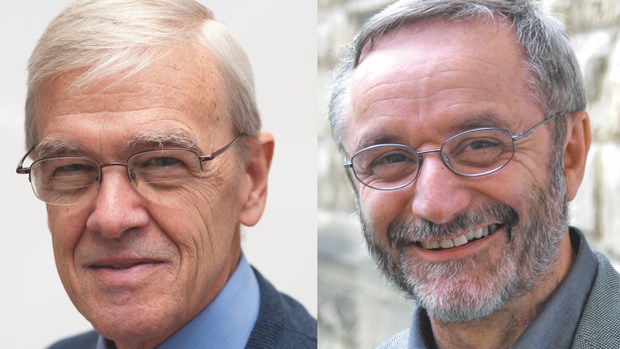
Robert Phillips & Rudi Balling: The bumpy road to Personalized Healthcare
The extensive coverage of the worldwide financial crises has masked a looming crisis in healthcare. In addition to the financial constraints affecting every part of society, healthcare also faces an innovation crisis.
Innovation in the field is clearly advancing faster than the ability of the system to adapt to the new innovations. Most experts acknowledge that the future of healthcare will involve sophisticated diagnostic and evaluative processes to dictate precise approaches for the treatment of disease or the maintenance of individual health. The evidence in favour of personalized healthcare is accumulating rapidly in some areas for example, the molecular diagnosis of cancer but numerous barriers to rapid implementation remain. Because many of these new processes could save lives, we need to ask why rapidly expanding these new innovations to all patients is proving so difficult.
A recent meeting in Luxembourg entitled Personalized Medicine in Europe: What will it take to succeed? brought together leaders from healthcare, business and academia to discuss the various aspects of implementation of personalized care. Unique and major challenges face each sector of the system. Patients are faced with a bewildering spectrum of options; device and pharmaceutical manufacturers are faced with shrinking markets for each intervention, making it difficult to create a profitable model. Physicians and health professionals face a big challenge in filtering patient data to find the best, individualized intervention. Finally, health policy experts are expressing concern about the cost of personalized medicine and the feasibility of introducing the new innovations without bankrupting the health system.
Most developed countries now spend from 812% of GDP on healthcare, and feel that if this increases substantially, it will seriously affect other essential services and compromise overall quality of life. Thus, the radical changes required in healthcare systems to accommodate innovation must occur primarily by replacing old processes with new. This approach has failed in the past, as healthcare professionals are often reluctant to give up traditional approaches for new ones without overwhelming evidence of improved outcome and efficiency.
Health policy experts know that introducing new processes from carefully controlled clinical trials into wide-spread clinical use almost never achieves the same efficacy as that obtained in the clinical study. Many factors account for this discrepancy, and these factors lead to a reluctance to introduce expensive new processes that may not produce the expected benefits.
A lot of healthcare researchers now recognize that we need to create a new process for introducing innovation into a healthcare system. Following confirmation in a clinical study, many new interventions should next be tested in an actual healthcare environment to determine whether or not the benefits of the new process can be easily achieved in a realistic healthcare setting. Such experiments in real’ healthcare systems are difficult to organize and manage, but several countries are leading the way in testing innovations in a real-world setting before attempting to introduce the innovation in the entire system (the Maimonides Project). Such experiments in community settings involving only a few thousand people can provide essential information on the feasibility of implementing the innovation in the entire system. The Maimonides group of countries has already achieved some documented successes in implementing cost-effective innovations that improve health and well-being. Hopefully, more countries will adopt this intermediate method of testing innovation, and will share their experiences with others.
Robert Phillips
1967-2010, professor, University of Toronto: 1996-2010 Leadership positions: National Cancer Institute of Canada, Ontario Cancer Research Network, Ontario Institute for Cancer Research; 2010 CEO, Integrated Biobank of Luxembourg
Rudi Balling
1993-2001 Director, Institute of Mammalian Genetics, Helmholtz Centre Munich; 2001
2009 Director, Helmholtz Centre for Infection Research, Braunschweig; 2009, Visiting Professor, Broad Institute, Boston; since 2010 Founding Director Luxembourg Centre for Systems Biomedicine, University of Luxembourg



 Vetter Pharma International GmbH
Vetter Pharma International GmbH HeiQ/AeoniQ, Renewcell
HeiQ/AeoniQ, Renewcell